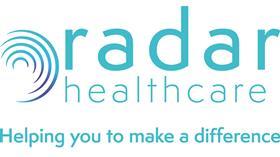Radar Healthcare’s Audit Management Software is helping its partners across health and social care to transform their auditing processes
Radar Healthcare is helping its partners across health and social care to transform their auditing processes with its new and improved Audits module. The module, which went live earlier this year, enables users to link together a market-leading audit and assessment module in the same central system as their risk, quality and compliance software.
Sponsored by
We know auditing is essential in healthcare to help ensure that healthcare providers are following proper procedures and providing a high-level quality of care. Digital technology can improve efficiency and add real value to audits by automating certain tasks, such as data collection and analysis, and allowing for easier collaboration among team members. It can also provide real-time data and analytics, allowing for more informed decision-making and better identification of areas for improvement.
A large number of organisations are still using Excel spreadsheets or paper-based methods, which leads to a lot of duplication and errors, and is also time-intensive. The right digital software allows teams to communicate and collaborate better and ensure that audits are more accurate and consistent, reducing the risk of admin errors and, therefore, improving the overall quality of care.
Radar Healthcare’s new Audits module allows users to continue their audit with or without internet access, meaning healthcare providers no longer need to factor in user access to computers or internet into audit timelines. A recent report by BT found that 58 per cent of responders cited connectivity issues are a real challenge when it comes to using technology so being able to work offline while carrying out an audit is a huge benefit to staff when it comes to their time and efficiencies.
Providing value was also fundamental in the creation of the module. Before launching the Audits Management Software, Radar Healthcare conducted a BETA testing group, which was a combination of all types of health and social care organisations to ensure ideas were captured across the entire healthcare continuum. These ideas were also shared across their Community Forum to discuss with other customers so there was a feel for demand of particular features, which has resulted in a product roadmap built in line with what Radar Healthcare’s partners want to see now and in the future.
Mark Fewster, chief product officer at Radar Healthcare said: “We know that when looking for risk management and audit software. Our customers need a product which competes with tools solely designed for this purpose, which is exactly what our Audits module now does.
“We’ve developed this in partnership with our customers, we’ve involved them both at the ideas stage and in our development process to ensure we can shape the product that they want. We’re confident that our fully integrated Audit module is as good as any standalone auditing software on the market but with the added benefit of being integrated with our full risk and compliance system.”

Users will be able to create bespoke audits with set or customised responses, share audits between different job roles and track the history of an audit’s actions. Customers can also amend audit frequency by location according to the needs of the organisation, for example, underperforming locations can be on a weekly or fortnightly schedule, while others may be audited monthly.
One thing Radar Healthcare partners are very impressed with is the functionality of being able to change their response types. Rather than having to change the wording of a question to fit a certain response structure, they can now gain fully customisable responses which is valuable in improving processes and creating more positive outcomes.
When looking for new audit management software, it’s important to consider the specific needs and requirements of your organisation and make sure whatever software you’re looking at ticks the majority, if not all, of your requirements.
There are lots of areas to consider, but some key factors to consider would be how user-friendly and easy it is to use. What’s web accessibility like? Can it be customised to your needs? There’s no point in implementing something that is extremely complicated to learn and navigate as frontline workers might not have the capacity or resources to learn or use it. Then there’s the need to have some form of reporting and analytics on the back of it. Even in its most basic form, something that identifies areas of improvement and helps drive actions.
Discover more on Radar Healthcare’s Audit Management Software here.

























